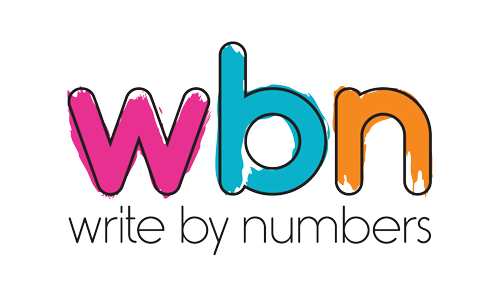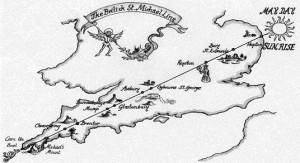On Saturday I read something on the internet which made me angry. Which is, in and of itself, deeply unremarkable in as much as the internet is powered by cat pictures and anger (though, thankfully, rarely at the same time). What is noticeable about this one is that I got angry over something which a lot of people I know and respect thought was brilliant and important.
I got angry over the speech Mark Ravenhill gave for the Inaugural Opening Address of the Fringe Festival.
Quite rightly people had jumped in to defend Ravenhill from what I can only assume was a wilful misrepresentation of his words by the BBC and the speech got RT’d in to my twitter stream and a parade of friends “shared” it on Facebook, all indicating their endorsement by degrees of superlatives. And – me? I just got angry.
More angry than the content of the speech merited.
And I did wonder if this was one of those things – like the NT’s Curious Incident… or cheese – where my own disquiet about it is pushed into anger because no one else seems to have noticed what I’m talking about.
But then I came back to it today, as I’d promised myself I would once the momentary flare-up had passed and, free from the initial flame, I could actually see what troubled me.
I think the first thing to note – and this is important – is that it’s very well written. It’s funny – albeit knowingly funny (but then I just tried that with less success by comparing Curious Incident to cheese so who am I to throw stones?) – and there’s a lot of Big Issues contained within and it builds to a satisfyingly rousing conclusion and call to arms. Most of all – it’s hugely flattering to its audience. Us old guys – we did it wrong, but you young ‘uns – you can change all that. And you finish up wanting to punch the air and shout – YES! We shall be different! We shall have a cooperative van company paid for by all our members! (Seriously, we should have a cooperative van company – I totally volunteer to administrate it).
In short: it’s really, really good rhetoric.
And if you want to see what’s the problem with that I should point you towards Andrew Haydon’s own state of the (arts criticism) nation, which is much less rhetorically controlled and much more spiky and obviously problematic but also much more brilliant and risky and angry and important. There’s no getting away from the honesty of that piece. In contrast – and you can only properly see it when you stand it next to something like Haydon’s – Ravenhill’s is curiously sterile in the honesty department. It postures at being honest – the humour and the critique of “the arts sector” and what “we” have done – but that’s not actually honesty. That’s critique dressed up with extended metaphor.
The defence for this then becomes that Ravenhill’s speech actually proves the point he is making. Haydon – free of the “system” in his own blog and without the weight of delivering the Inagural Fringe Address and a contract with the RSC and all of the stuff that goes with being Mark Ravenhill – has the honesty which Ravenhill is lamenting the loss of for those who play within.
Form expressing content – it’s a writer’s wet dream.
Until now the word I have chosen to describe Ravenhill’s speech is rhetoric. If I were being less kind – or if I hadn’t been beaten around the head with examples of classical rhetoric during a particularly ill-fated episode during my BA – I might use the word “spin”. If I use the word “spin” Ravenhill becomes not trapped by the prevailing climate but complicit with the “New Labour” mode he is ostensibly railing against.
And that’s what made me angry. Because the speech raises a number of important, salient points but never properly owns them:
“I think the arts sector as a whole went astray during the last couple of decades.”
“I think they [the arts] weren’t telling the truth”
“most artists are…”
“we were talking about working in the creative industries”
[my italics]
What we actually have there is some pretty broad brush strokes (am I to seriously believe that in two decades no one in mainstream art was telling the truth – whatever ‘truth’ might actually be, subjective as it often is? NO ONE?). And then there’s also a problem with slipping from “the arts” (which, in its own way, is as meaningless and unhelpful as “creative industries”) to individual artists to a “we” I’m not exactly sure who is part of.
The only point I come close to thinking we might get some honesty is:
and after a while for a few years a modest but real terms increase in government funding for the arts. And we artists were so grateful for that relatively modest bit of attention and money that we changed substantially what and who we were as artists.
The first “we artists” in that doesn’t even trouble me too much, it’s a we that seems to have some truth. The second one, however, that’s the sort of generalisation that makes me sad. Because I can’t work out if it’s an inability to say the word “I” – which is fair enough, it would be a difficult thought to say in your head, let alone in a room full of people in your industry – or if it’s because it’s a casual sweeping statement, suggesting something important is being offered whilst in reality being a bit meaningless. Then, just in case there was a risk of an “I” getting in there, we get an imaginary conversation between a mother and a child to send up the point. Which is nice as far as I like imagination and I like jokes, but not something that stands up to any sort of discussion about what truth this speech is based on.
And because there is nothing solid in the speech and no ownership I can only conclude that the speech is a negation of responsibility.
And if there’s anything I’m absolutely fucking sick of then it’s negation of responsibility. Since 2008 we’ve been drowning in the stuff.
But it’s okay – you, this new generation, you’ll get us out of this. You’ll dream up new ways of working.
Yes, me and my £13,000 in student loans (and it makes me blanche that a debt of that amount marks me out as one of the lucky ones) and overdraft and not really remembering what a weekend is and forgetting what normal social lives are and doing everything I can just to stick at this for long enough – just as everyone I know who is still hanging in is – we will imagine and re-design and it will be amazing and we will just have to eat a lot of toast and carry all of our stuff to Edinburgh.
I might only speak for myself here, but I think this particular “we” could do with some help. Help that’s better than a collection of well written words, or to borrow a phrase from some women who knew what they were talking about, “deeds not words”.
You’ve identified the problem (at least as far as you see it), Ravenhill. Now what are you going to do about it? Because my “we” – the disparate “we” I’ve seen doing and imagining and helping – it’s a “we” I embrace my part in. Own it. Own your words.

